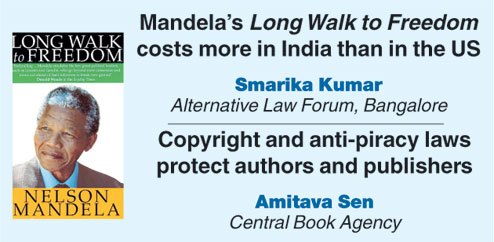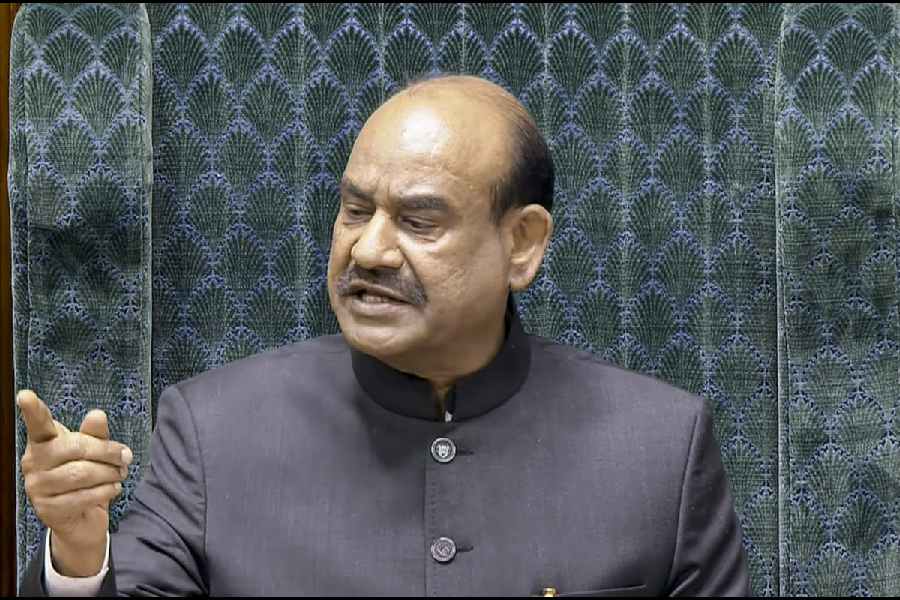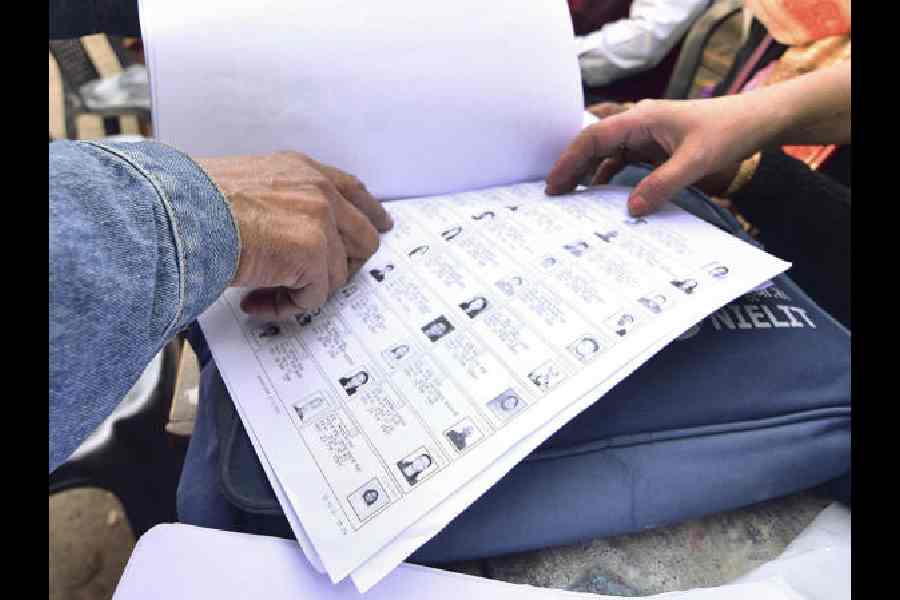 |
The Bard would have praised a clutch of speakers for giving “thy thoughts” a tongue as they sparred over the finer points of copyright on his 450th birth anniversary and in an age of free digital download.
Speakers from the Centre for Studies in Book Publishing, Calcutta University, a handful of publishers from Delhi and Calcutta and a lawyer from the Alternative Law Forum, Bangalore, exchanged views at a seminar by the National Book Trust at CU on the day Shakespeare was born, coinciding with World Book and Copyright Day.
The session began with a discussion on the Delhi University photocopy lawsuit where Oxford University Press, Cambridge University Press, Taylor & Francis and Routledge slapped a case of copyright infringement on the university and Rameshwari Photocopy Service for alleged unauthorised photocopying and distribution of course material.
“Photocopy allowed people to access books that are priced high and out of print, and books that are not available. It popularises books among readers, increases circulation of books among students. That’s what piracy is for you,” said Smarika Kumar of the Alternative Law Forum.
Like the students protesting the lawsuit against the photocopier, Kumar made a case for piracy much to the horror of the publishers.
Arguing that the price of books made piracy thrive, she said: “It’s a myth that the Indian edition of books is cheap. Nelson Mandela’s Long Walk to Freedom costs more in India than in the US.”
She said Indians spend a higher percentage of their income on books — 0.117 per cent for Arundhati Roy’s God of Small Things against an American’s 0.0002 per cent for the same book.
Kumar illustrated how piracy helped spread literacy in the US in the 19th century. “A Christmas Carol by Charles Dickens was priced at $2.5 in 19th-century UK but the book was available for 6 cents in the US. The US pirated the book on a large scale. There was no international regime of copyright then and the US was the biggest pirate of copyrighted books,” she said.
Publishers refused to buy the piracy-literacy argument, saying free books are distributed in the country under the Sarva Shiksha Abhiyan. Indian language books are often fairly priced and accessible to readers, they pointed out.
When Amitava Sen of Central Book Agency said copyright and anti-piracy laws “protect the right of both authors and publishers”, Kumar said piracy has actually jacked up legal sales.
Online piracy was eating into the sales of British author Neil Gaiman’s American Gods. In Russia, where people were downloading copies of Gaiman’s books, Russian translations were being published. “Thereafter, Gaiman persuaded his publisher to release a free digital copy of American Gods. Soon enough, legal sale of his book shot up by 300 per cent,” said the lawyer, stressing the need to “interpret the copyright law liberally”.
Arpita Das of Yoda Press nodded in agreement. “In this age of free digital downloads, we publishers need to smell the coffee. We cannot be as protectionist as we used to be,” said Das, citing Paulo Coelho whose free digital copy in Russia increased legal “sales by 1 million”.
Calling for a more liberal approach, both cited Creative Commons, a non-profit organisation that enables sharing and use of creativity and knowledge through free legal tools that offer the right to distribute copies and modified versions of a work.
On freedom in publishing, Nirmal Bhattacharjee, former director of the National Book Trust, called “for a fine balance between protection of intellectual property rights and dissemination of knowledge”.
Mandira Sen of Stree proffered a case against the banning and withdrawing of Wendy Doniger’s The Hindus: An Alternative History.











